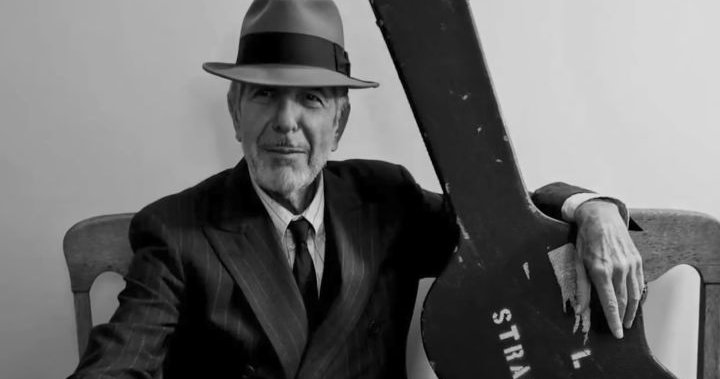Leonard Cohen was deep in his career when he finally finished “Hallelujah.” Well, the first version of “Hallelujah” — there would be many, many versions when all was said and done. He’d toiled on the lyrics for seven years. Yet when he submitted the album Various Positions to his longtime record company Columbia Records in 1984, the company’s president Walter Yetnikoff decided not to release it in the U.S. What would become Cohen’s seminal anthem was dead on arrival.
But in the new documentary Hallelujah: Leonard Cohen, A Journey, A Song, in theatres soon, directors Dayna Goldfine and Dan Gellar examine how despite the odds, the song managed to take on a life of its own thanks, in varying degrees, to Bob Dylan, John Cale, Jeff Buckley and Shrek. Yes, Shrek.
Now, four decades after its initial recording, it’s downright ubiquitous, a regular feature in movies, television shows and singing competitions around the world.
READ MORE: Representative for Leonard Cohen says estate declined use of ‘Hallelujah’ at RNC
It’s an interestingly stitched together film that starts at the end — his final performance in 2013, singing “Hallelujah,” of course — and rewinds to the beginning of his songwriting career to trace how he got there. It feels, in some ways, like two different films: The first part is a standard biographical documentary that then shifts focus to “Hallelujah’s” resurrection outside of Cohen, before finally turning attention back to Cohen and his triumphant final tour. As the title says, it is a journey and a long one at that.

The filmmakers are enamoured of their eloquent subjects, from Judy Collins and composer/arranger John Lissauer to a childhood friend and his rabbi Mordechi Finley.
One of the main voices is journalist and author Larry “Ratso” Sloman who interviewed Cohen many times over 30 years and whose tapes of those interviews are used to let Cohen speak for himself. The archival footage, too, is pretty extraordinary and elegantly paired with Cohen’s music throughout.
READ MORE: Canada Post reveals Leonard Cohen commemorative stamp to mark late singer’s birthday
Much of the film is devoted to chronicling Cohen’s own spiritual journey and his evolving relationship with his Jewish faith, from his poetry to his later years at a zen centre atop Mt. Baldy. Singer Regina Spektor marvels about his graciousness at his Coachella performance in 2009, saying that it was like Cohen was teaching the audience how to be good.
And yet, for all the talk about and praise for his seeking, this is a film that seems completely uninterested in the fact that he’s the father of two children. We see photos of them as babies with their mother during an offhanded mention that his family was breaking up. A reporter mentions the kids later, but only in context of clarifying that their mother Suzanne Elrod was not in fact the woman he was singing about in Suzanne.

There could be many reasons for this, including possibly honouring the wishes of his grown children, or wanting to focus on the work. But the absence of any acknowledgement makes this attempt at a deep, holistic portrait of Cohen feel incomplete at best. There is more time devoted to explaining the aesthetics of Shrek than his relationship with his kids.
READ MORE: Leonard Cohen’s first posthumous album revealed: ‘Thanks for the Dance’
Or maybe they just weren’t really part of the path to “Hallelujah,” though his daughter did have a child with Rufus Wainwright, who is responsible for one of the more famous covers of the song, featured on the wildly successful Shrek soundtrack.
A lot of credit for the prolonged life of the song is given to Shrek. Even though movie soundtracks have diminished somewhat in cultural currency, it is hard to underestimate the power of hearing a great song for the first time in a movie.
It is interesting, though, that it seems to have been John Cale’s cover that became the most influential. He stripped down the arrangement, took to the piano, belted out the lyrics and turned “Hallelujah” into a melodic anthem. Jeff Buckley even said that though Cohen wrote the song, it was Cale’s version that he was covering. No one, it seems, from Brandi Carlile to Bono to Eric Church, is out there singing Cohen’s version.
In one interview, after “Hallelujah” placed No. 1 (The X Factor contestant Alexandra Burke), No. 2 (Jeff Buckley) and No. 36 (Cohen) in the UK in 2008, Cohen said he thought “People ought to stop singing it for a little while.” Sloman believes he was kidding, but it hardly even matters at this point. The song became bigger than Cohen and seems destined to live on in the culture for years to come.

© 2022 The Associated Press



